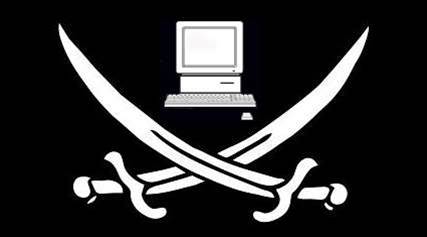The treaty, which seeks to establish global rules on copyright, is currently being hammered out in extreme secrecy by representatives of Australia, Canada, the EU, Japan, Korea, Mexico, Morocco, New Zealand, Singapore, Switzerland and the US.
The Bush administration consistently refused to hand over details of the negotiations and the proposed changes it will bring.
However, documents given to Wikileaks suggest that companies and governments will get sweeping new powers to search and seize material deemed in breach of copyright.
It had been hoped that the Obama administration would be a little more open about the negotiations, but it has proved even more secretive and has turned down a Freedom of Information (FoI) request to view papers related to ACTA on the ground that they are "classified in the interest of national security pursuant to Executive Order 12958".
"Throughout our history, the national interest has required that certain information be maintained in confidence in order to protect our citizens, our democratic institutions and our participation within the community of nations," reads the Executive Order.
"Protecting information critical to our nation's security remains a priority."
The FoI request was filed by Jamie Love, director of the non-profit Knowledge Ecology International (KEI), who is disappointed at the stance taken by the government, particularly as draft copies of the classified paperwork are already in wide circulation among members of the technical and entertainment industries and corporate lobbyists.
Love has written to the White House asking it to change its stance and to release details of what is being negotiated and how individual privacy rights will be reconciled with the need to cut down on piracy.
"I'm not sure if this is the best 'ask' in terms of transparency, and we have suggested to other non-governmental organisations that we formulate a joint position on the transparency of the ACTA negotiations," he wrote on the KEI blog.
"We also want to develop a more coherent 'ask' for transparency of the various bilateral trade negotiations currently undertaken by the US, EU and many other trading partners (see Bilaterals.org for an impressive list of such negotiations).
"I think we are at a point where we need to think more systematically about issues of transparency to deal with the growing democracy deficit in global norm setting. Suggestions to the appropriate policies on transparency are appreciated."
The EU, which is heavily involved in the negotiations, has attempted to reassure citizens following the case that the new laws being proposed will not affect civil liberties.
However, this has not reassured its own parliament, which has just passed a resolution demanding that the documents be revealed.




_(23).jpg&h=140&w=231&c=1&s=0)






 Cyber Resilience Summit
Cyber Resilience Summit
 iTnews Executive Retreat - Security Leaders Edition
iTnews Executive Retreat - Security Leaders Edition
 Huntress + Eftsure Virtual Event -Fighting A New Frontier of Cyber-Fraud: How Leaders Can Work Together
Huntress + Eftsure Virtual Event -Fighting A New Frontier of Cyber-Fraud: How Leaders Can Work Together
 iTnews Cloud Covered Breakfast Summit
iTnews Cloud Covered Breakfast Summit
 Melbourne Cloud & Datacenter Convention 2026
Melbourne Cloud & Datacenter Convention 2026












_(1).jpg&h=140&w=231&c=1&s=0)



